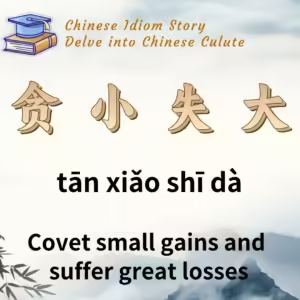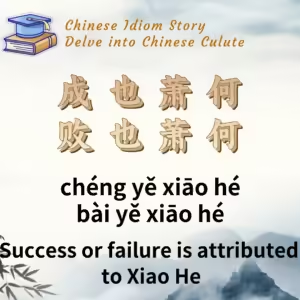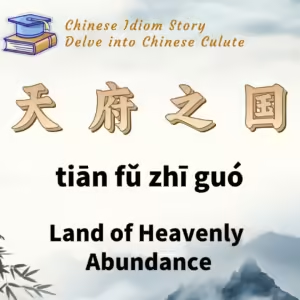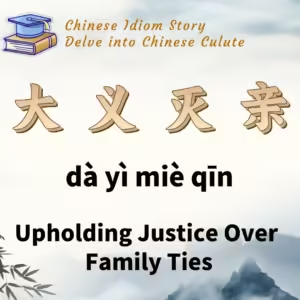
Chinese Idiom: 贪小失大 (Tan Xiao Shi Da)
English Translation: Covet small gains and suffer great losses
pīn yīn: tān xiǎo shī dà
Idiom Meaning: This idiom refers to the foolishness of pursuing minor benefits at the expense of much greater losses.
Historical Source: From Liu Zhou’s Xin Lun: Greed and Love.
Idiom Story:
In ancient times, during the Warring States period, there was a prosperous kingdom known as Shu, located in what is now Sichuan Province. The land was fertile, and resources were abundant. However, the king of Shu was exceedingly greedy and always looking for ways to amass wealth.
At that time, the neighboring state of Qin, under King Huiwen, harbored ambitions of annexing Shu but faced difficulties due to the treacherous mountain paths that made military campaigns challenging. King Huiwen, recognizing the Shu king’s greed, devised a cunning plan.
He sent nine skilled artisans to carve a large stone statue of an ox and adorned it with a wealth of gold and silver. They spread the rumor that this miraculous ox could defecate gold. Upon hearing this, the king of Shu was intrigued and sent envoys to Qin to inspect the statue, eager to purchase it.
King Huiwen, playing along, graciously offered the stone ox as a gift to the Shu king. Overjoyed, the Shu king ordered his subjects to construct a road through the mountains to facilitate the ox’s transport. This effort was immense, involving the labor of many strong men to clear the treacherous paths.
Once the road was completed, King Huiwen seized the opportunity and launched a full-scale military attack on Shu. The unprepared Shu kingdom fell swiftly, resulting in the king’s demise and the kingdom’s destruction.
After recounting this tale in Xin Lun: Greed and Love, Liu Zhou remarked, “A country destroyed and a king lost is a laughingstock for the world, for he lost great advantages by coveting small benefits.” This reflects the moral lesson that the Shu king’s downfall was a result of his greedy pursuit of minor gains, leading to his significant losses.
Thus, the phrase “贪小失大” was coined, emphasizing the folly of prioritizing trivial benefits over substantial gains.






